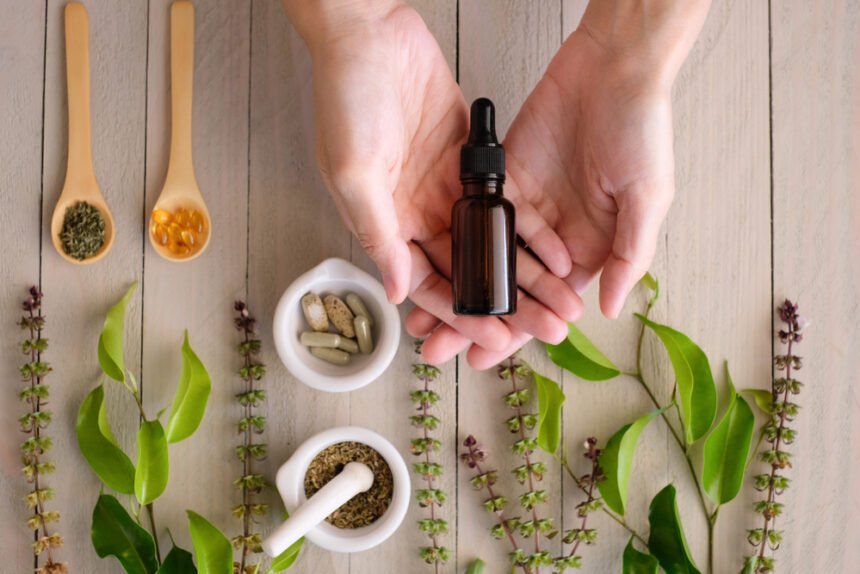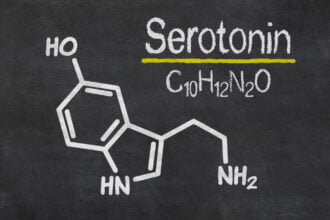Ever since the farm bill passed in 2018, consumers started wondering about the benefits of CBD oil and hemp seed oil. With a farm bill, producing industrial hemp became legal in the U.S. and this led to a number of companies creating products inspired by the two hemp derivatives. The fact that the Food and Drug Administration (FDA) gave a green light to a CBD-based drug only sparked more interest among consumers. Because terminology might be somewhat confusing, it’s important to know how to distinguish between the two.
What is hemp seed oil?
First, let’s talk about hemp seed oil. The name itself already says a lot – it’s an oil that’s extracted from industrial hemp seeds. To obtain the oil, the seeds of the Cannabis sativa plant are cold-pressed. After that, the oil either gets bottled or it goes through additional refining processes before it’s ready to be poured into the bottles and sold.
While hemp seed oil does not contain any THC or tetrahydrocannabinol, there may be a small amount of CBD present. However, its amount is fairly insignificant and won’t get you high. Hemp seed oil is very rich in nutrients (vitamin D and B), and what it does contain are fatty acids (omega-3 and omega-6) as well as gamma-linolenic acid.
How is hemp seed oil used?
Because hemp seed oil doesn’t create a state of euphoria as those properties are lacking or very limited, the hemp seed oil isn’t used for recreational purposes. However, since hemp seed oil is rich in proteins, nutrients, and antioxidants, it is sometimes incorporated in the ingredient list of certain supplements and nutritional products such as yogurt, cookies, bread, and snack bars. Hemp seed oil is also used as a nourishing oil and applied topically, but it can also be used to produce fibers and clothing.
What are the effects and benefits of using hemp seed oil?
Rich in essential acids and antioxidants, the hemp seed oil is an excellent source of a number of nutrients that nourish the body. Some of its many benefits include improving gastrointestinal and skin conditions and helping the immune system. Using hemp seed oil is also said to help individuals suffering from constipation by relieving it. Because of its vitamins and nutrients, the hemp seed oil is also said to have anti-aging effects as well as antioxidant and anti-cancer effects.
When purchasing hemp oil online, it’s best to look for those hemp products certified non-GMO and organic. Your safest bet would be to purchase yours from hemp companies that source their ingredients from their own farms or local farmers. That way, you can rest assured knowing you’re getting the purest whole-plant hemp extracts for yourself.
What is CBD oil?
Also derived from Cannabis sativa plant, CBD or cannabidiol oil comes from different parts of the matured hemp plant. Unlike hemp seed oil that’s derived from seeds, CBD oil is gained from stems, stalks, flowers, and leaves, and its quality can be somewhat influenced by the method of extraction that’s being used (e.g. ethanol, olive oil, carbon dioxide, etc.). CBD oils available on the market may contain all or some compounds of the cannabis plant and either include THC or not. They can be full-spectrum and broad-spectrum CBD oils. Another type of CBD oil is the one that contains only CBD and is made using CBD isolate, meaning there are no cannabinoids or plant impurities.
How is CBD oil used?
Due to its therapeutic effects, cannabidiol oil is often used for medicinal purposes. With the rising demand for CBD, companies are coming up with various products such as CBD edibles that are made using CBD oil while the addictive component is filtered out. As for the cosmetic products, CBD oil can only be incorporated into the ingredients list if it has under 0.3% THC. However, you want to do your research since brands are not obligated to disclose the amount of THC present in beauty products.
What are the effects and benefits of using CBD oil?
Different CBD oil components have different effects. Beta-caryophyllene and cannabichromene have pain-relieving effects, cannabigerol has anti-inflammatory and neuroprotective properties, while limonene has antitumor and antioxidant effects. CBD is said to have antiepileptic effects, and can also be used to relieve feelings of anxiety and depression. THC also has anti-inflammatory and pain-relieving effects while also being effective against nausea. When purchasing CBD products, make sure that they’re tested for quality and purity and have a Certificate of Analysis (COA). If the product has a thorough label and is tested by a third-party lab, you will be fully aware of what the CBD product contains.
Wrapping up
While they’re both oils that come from the Cannabis sativa plant, hemp seed oil and CBD oil are still quite different. The intoxicating properties (such as those of marijuana) are absent in both oils (aside from full-spectrum CBD oil), but they differ in the sense that hemp oil does not contain THC while CBD oil may legally contain 0.3% THC.
Because of their healing properties, using them can be very beneficial, and they can be either ingested or applied topically. Unlike hemp seed oil, CBD is still relatively new to consumers, and knowing the difference between the two can help you avoid confusion when making a purchase and reap all the benefits of using these products.








